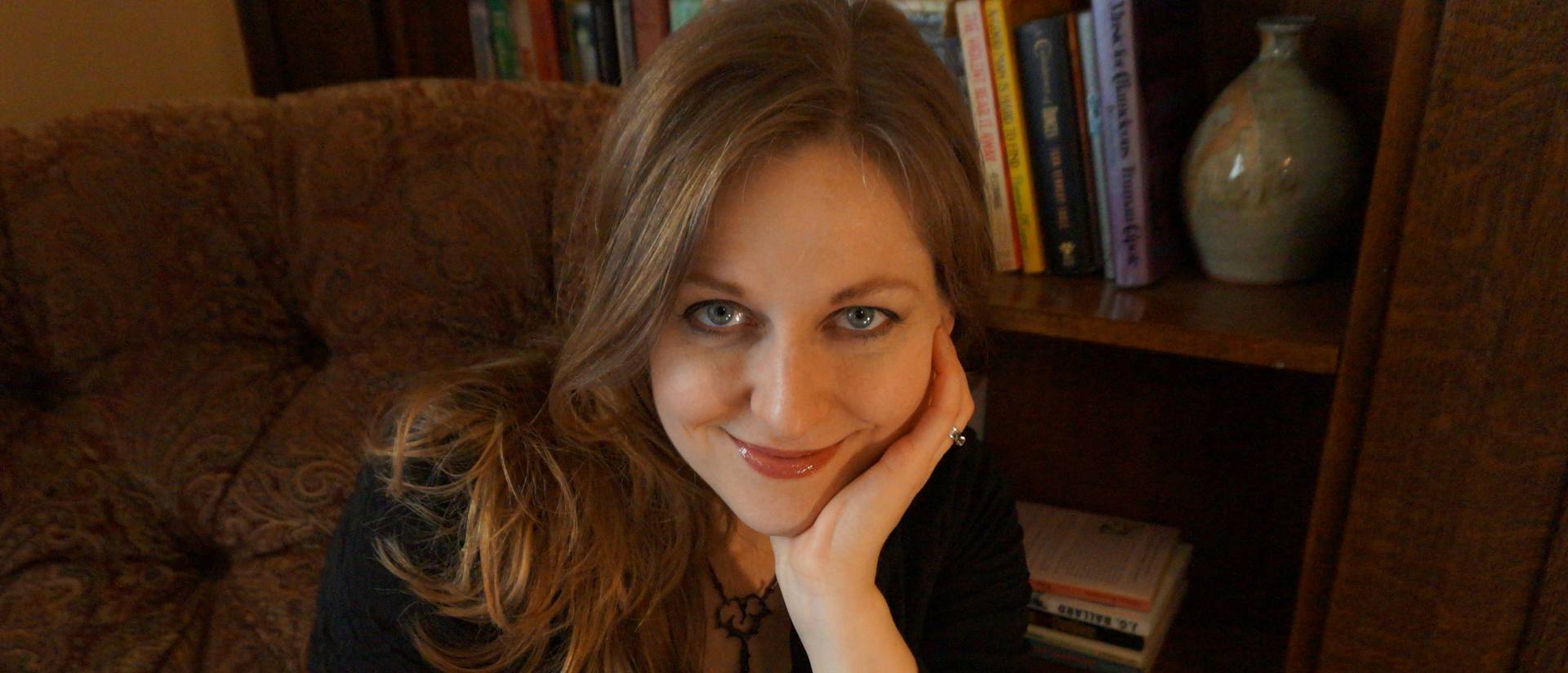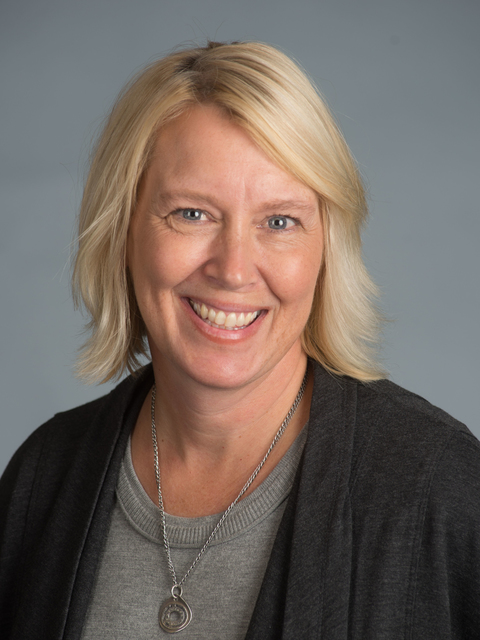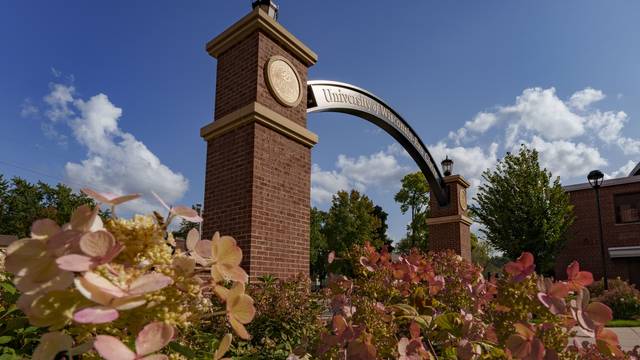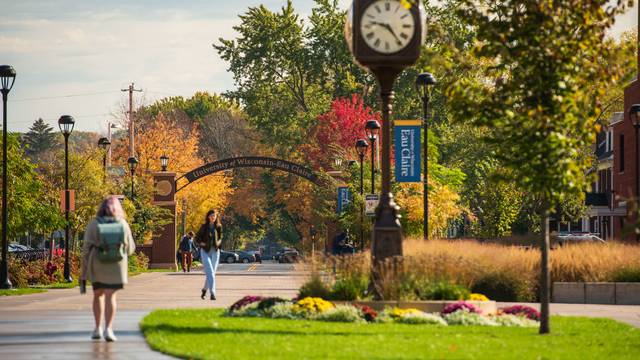Photo caption: Jacqueline Cobian West graduated from UW-Eau Claire in 2003 with a major in music and a minor in English. It didn’t take her long to realize that while she loved performing, her passion was writing. The Blugold now is a an award-winning poet and a New York Times bestselling author whose young adult novels are beloved by tweens, teens, parents and teachers.
Jacqueline Cobian West came to the University of Wisconsin-Eau Claire with a love for music and a passion for writing. As a Blugold, she found plenty of opportunities on and off campus to immerse herself in both the performing arts and in literature.
Shortly after graduating from UW-Eau Claire in 2003 with a major in music and a minor in English, she realized that while she enjoyed the performing arts, her real passion — and her future career — was in writing.
Eighteen years later, West is a poet and New York Times bestselling author whose young adult (YA) novels are beloved by tweens, teens, parents and teachers. Her most recent novel, "Long Lost," earned the prestigious Junior Library Guild Gold Standard honor as it was being released this spring.
West, who grew up in River Falls and now lives in Red Wing, Minnesota, took time to share some of her journey, which has taken her from college student to acclaimed author and award-winning poet.
After majoring in music, how did you know writing was the path you should follow?
My real passion is stories. That’s what I’ve loved ever since I was little: collecting stories, hearing stories, telling and retelling stories. I started performing in music and theater as a kid, which is one way of telling stories, of course. I also started writing stories as a kid, and I loved the freedom and power and challenge of being the one who got to create those stories from scratch. But I did my writing in secret because I never felt good enough at it. I literally hid my notebooks in the bottom of my dresser drawers, under piles of pajamas.
It’s funny: When you’re a singer, everyone around you knows it, because you have to actually get up in public and sing. Writing, on the other hand, can be totally secret. You can write for years without even your close friends or family knowing what you’re up to. And because singing is so external, it can come with a lot of powerful external validation. With my writing, because almost no one knew about it, no one was applauding me, or paying me or urging me on. All my motivation was internal.
After I left UWEC to start grad school for opera and finally admitted to myself that I didn’t want to pursue a career in the performing arts, I realized there was something else that had been there all along — something that I loved so much that I was pouring time and work and emotion into it without any external validation at all. So, I earned my English teaching certification, started publishing poetry and short fiction, and got a job as a high school English teacher. I was starting my second year of teaching when I signed my first book contract. I probably should’ve realized my true calling sooner. But if I had, I’m not sure I’d be who and where I am today. I’m grateful for the whole twisty path that got me here.
What role did music play in your life during college? What inspired you to change direction?
I was completely hooked on performing. I loved being inside of a story, conveying it to the audience, getting to disappear into a character. In Eau Claire, I was lucky enough to get lots of performing experiences: UWEC operas, Chippewa Valley Theatre Guild musicals, cantoring at the Newman Center, eight long-running shows at Fanny Hill Dinner Theatre — the best college job ever!. I liked teaching music — I worked as a voice instructor at a few Eau Claire music centers — but I didn’t love it. That’s one of the things that showed me I wasn’t meant for a career in performing arts.
With literature, I loved everything about it: studying it, talking about it, reading other people’s work, writing and rewriting and re-rewriting. I knew I could happily teach English for the rest of my life, even if I never made a living as an author. I didn’t feel the same way about music. That seemed like a pretty clear sign to me.
For most of my time at UWEC, I had a double major in music and English. I started college with strong interest in both areas, and I could never pick one over the other. At the end of my time at UWEC, I switched my English major to a minor. I was getting married, I’d already decided to go to grad school for vocal music and I wasn’t sure I could finish the requirements without another semester. Looking back, I should’ve stuck it out for another half a year. There were lots of English courses I would have loved to take. Then I wouldn’t have had to finish my degree later, on top of earning my teaching certification.
What are some of the experiences you had or people you met during your time as a Blugold that helped you get where you are today?
Oh, SO MANY good memories. The music faculty during my time there was incredible. I’m so lucky I got to work with voice instructors like Robert Knight and Mitra Sadeghpour, that I had excellent piano and theory and music history teachers, and that I got to travel around Europe, singing in places like St. Paul’s Cathedral and Notre Dame with Concert Choir. The music department at UWEC really felt like a family, which is one of the reasons I was pulled so strongly in that direction, I’m sure!
Another experience I really loved, and that showed me exactly what I might be meant to do, was working on the selection committee for NOTA, the student literary magazine. Getting to sit in a room all afternoon with a bunch of other writers, arguing passionately about poetry? BLISS.
I also started writing the book that would become my first published novel while I was a student at UWEC. I wrote bits of it at Acoustic Café, in my rented apartments, in the basement at Fanny Hill during intermission. My memories of starting "The Shadows" are scattered all around that town.
What’s the story behind your latest book, "Long Lost"?
Long Lost begins with a girl named Fiona who has just been forced to move to a tiny New England town for the sake of her older sister’s figure skating career. While wandering through the local library, Fiona finds a mystery novel about two sisters, a small town and an unexplained disappearance. As she reads, Fiona starts to notice that all the places mentioned in the book seem to match the locations in her new town. And when she realizes that the story might not just be set in her town, but that it might actually be true, Fiona sets out to solve the unfinished mystery for herself.
Publisher’s Weekly called it “a love letter to libraries and the mystery genre,” and that is absolutely what I was going for.
"Long Lost" was a Junior Library Guild Gold Standard selection, which is huge for a middle-grade writer. Knowing the book has been endorsed by a big group of passionate readers/librarians, and that it will reach a lot of library users, is a great boost. I’m so grateful.
Did you always plan to write YA and middle-grade novels?
I didn’t plan it at all! My first published book, "The Shadows" (volume one of my series "The Books of Elsewhere"), was the first thing I’d ever even tried to write for young readers. Before that, I had written a lot of poetry, short fiction, graphic novel scripts and a few terrible novels, all of it for adults. But I had this idea that wouldn’t leave me alone — an idea involving a strange old house, a lonely girl, three talking cats, and a world of living and dangerous paintings. When I finally started to put that idea on paper, everything fell into place. It was still really hard work, but it felt like I’d found the story I was meant to tell and the style I was meant to tell it in.
I wrote that first book with my own childhood very much in mind. I’m the oldest of three, and I read aloud a lot to my two younger brothers — books like "Bunnicula," "Calvin & Hobbes" and "Matilda"; things that were exciting and creepy and funny all at the same time. As I wrote "The Shadows," I was thinking about what the three of us would have liked.
These days, instead of just writing for my childhood self or my brothers, I often feel like I’m writing for my main character — like I wish I could put the finished book into their hands and make them feel seen and understood and hopefully entertained. I love writing for middle grade and YA audiences because they’re such passionate, thoughtful readers. They’re old enough to choose books on their own, but they’re still so imaginative, so able to immerse themselves in fictional worlds. Late elementary through early middle school is the age at which I discovered how vast and amazing the world of books really was. It’s a privilege to write for readers who are in the same part of their journeys.
What are some general themes that readers find throughout your novels?
All of my novels have some speculative or fantastical elements. There are talking animals, powerful objects, ghostly beings, hidden magical worlds — all the kinds of things that I hoped really existed when I was growing up and that I daydreamed about discovering in my own backyard.
This isn’t intentional — at least not consciously — but I also tend to write about characters who perceive things differently from the people around them; who notice or listen or pay attention to things that other people don’t see. And in part because of this difference in perception, my main characters often start out feeling lonely or odd or isolated, but through the course of the story, they find or form a community. If there is any kind of lesson in my books, I suppose that’s it: That you’re not alone.
What do you enjoy most about being an author?
This is my dream job. I love so many things about it! But one of my very favorite things about being a writer is getting to have multiple lives all at once. On days when the writing is going well, I can sit down, fall into the work and glance up to find that hours have gone by. During those hours, I’m in another world, exploring strange and magical settings, listening to my characters, having incredible adventures and experiences, all from my own desk chair.
You also are a poet. How does poetry fit into your life and writing career?
Poetry was the first kind of writing I got serious about. I wrote hundreds of poems before I tried to write my first novel. The only formal writing workshop I ever attended was for poetry, and the first several things I published were poems. I still look at fiction as a poet. I think about rhythm and sound and figurative language almost as much as I think about plot and pacing and character. In this way, poetry is always a part of my writing, even during the spans of time when I’m focusing on fiction instead.
These days, I write poetry when I can, most of it also speculative/fantastical, and I still publish here and there. My collection "Candle and Pins: Poems on Superstitions" came out in 2018. I’m hoping I’ll have enough connected poetry to form another collection before too long.
When did you know that you had “made it” as an author?
Ha! I’m not sure I ever really felt like I’d “made it” as an author. I don’t know if I ever will. For every award you win, there are a hundred that didn’t nominate you. For every list you hit, there are dozens that you didn’t. Even after you’ve sold hundreds of thousands of books, you can feel like you haven’t lived up to your publisher’s hopes. And because publishing moves slowly, by the time a book comes out, the writing part of the process has been done for nearly a year, so you always must be focused on what comes next. It’s pretty hard to just sit still and celebrate, even when you should.
There is one moment that is burned into my memory, though. It wasn’t a moment that told me I had made it, exactly, but it’s what showed me I was an actual author. It was a week or so before my very first book came out, and a group of kids in Chicago had gotten to read early copies, so I met with them when I visited a big Chicago-area bookstore. They were asking me questions, telling me things they liked, and one of them quoted my own book to me. He had memorized one of the talking cats’ funniest lines. That just turned me upside down. Real kids were reading my book, remembering my words, bringing my characters to life in their imaginations. That still feels like magic to me.
What advice do you have for Blugolds who hope to write their own novels or launch a writing career?
First, read like crazy. Read everything, not just the kind of thing you most like to write. The more widely you read, the more ingredients you’ll have to use in your own fiction. Next, take a writing workshop or join a critique group. College is the perfect time! I wish I’d done it back then myself! And third, find something you love to do as much — or almost as much — as you love to write. Very few writers make a full-time living from their work, and even the luckiest ones have spent years of unpaid time polishing the book that finally gets them a book deal. You’ll need that other kind of work to support you while you hone your writing skills. Plus, writers need material. The more you’ve explored, the more things you’ve tried and learned and experienced, the more you’ll have to inspire and inform your writing later.
What is next for you?
I just finished a new YA manuscript, so I’ll be revising that and then sending it off to my agent soon. After that, I have a couple of middle grade and YA novel ideas waiting impatiently in the wings, along with several short fiction projects. Plenty to keep me busy!
Anything else you want to share?
I’m easy to find online. My website is jacquelinewest.com. I’m also on Instagram (jacqueline.west.writes) and I finally joined Twitter (@JacquelineMWest). Anyone who’d like to know more about my writing projects or process can find info there. Also, I do my best to respond to every reader who writes to me, so young readers and aspiring writers are welcome to reach out.




